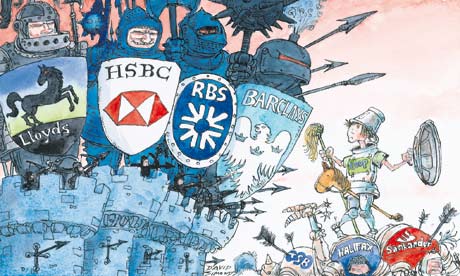FEW Greeks have a good word to say about the European banking system these days. They believe it’s the real reason for their current crisis, having pushed easy money on their politicians and now demanding a pound of financial flesh.
It was the same story 800 years ago. The men of the Fourth Crusade, who had originally set off to fight for Christianity in the Holy Land, found themselves instead ransacking Constantinople, the capital of the Greek-speaking Byzantine Empire, because of enormous debts that had been racked up in the West.
The way Europe has behaved over the current Greek crisis is scarcely less shameful than the way those crusaders behaved all those centuries ago. If nothing else, that dark spot on the West’s historical record should be a warning to the bankers and politicians who would rather watch Greece fall apart than take responsibility for their own profligacy.
Greece may be on Europe’s periphery today, but in the 12th century Constantinople was the gateway to a lucrative trade in spices, silks and luxury goods coming from the east. This trade had made fortunes for men across Europe — as the economies of Greece, Spain, Portugal and Italy have done over the last two decades.
Traders from places like Venice, Genoa and Pisa in the late 12th century managed to win for themselves the sort of advantages and loopholes in Constantinople that bright young fund managers would kill for today: they negotiated positions that allowed them to undercut local traders, alongside smart commercial treaties that let them minimize or even sidestep their taxes. As with modern Greece, this led to a flow of cheap foreign capital into the markets.
Around 1200, though, things went sour. A sharp contraction of trade in the Byzantine Empire was exacerbated by wild overspending by Venice, the medieval equivalent of a European central bank.
Almost overnight there was a switch from the easy money, where everyone was a winner, to the dark arts of debt collecting. As with Athens since the financial crisis took hold, it became clear that no one would take responsibility for lending too much, for basing forecasts on only best-case scenarios.
Someone would have to cover the losses, and Venetian merchants were adamant that it would not be them. Constantinople and the Greek-speaking empire, riven by internal divisions, was the obvious mark.
Eventually, one of the rival factions in Constantinople offered a deal with Venice: in exchange for covering the Most Serene Republic’s losses, the faction would receive Venetian military muscle to secure its claim on the Byzantine throne. Venice jumped at the deal.
But Constantinople had vastly underestimated the size of its new debt obligations — and overestimated the stabilizing effect of Venetian arms. Financial obligations mounted abroad, while political paralysis deepened at home.
Everyone from the pope to the kings of Europe knew about the pressure building against Constantinople. One Western delegation after another told the Greeks to get their act together — or, to put it more bluntly, to pay up. The crusaders, under the sway of Venice, lay siege to the city.
Eventually, the Westerners had enough of the procrastination. Seizing their chance, the knights stormed Constantinople. What happened next was a disgrace: the prize assets of the empire were looted at will, seized as collateral by a mob that behaved with no concern for the city’s inhabitants, its culture or its history.
According to one account, prostitutes danced on the altar of St. Sophia, the most beautiful church in the whole of Christendom. Palaces, gardens and holy places were ransacked, with treasures taken off by the cartload. The great collections of relics held in the imperial capital were seized by the Westerners to adorn cathedrals and churches across Western Europe; to this day four bronze horses, stolen from the hippodrome of Constantinople, stand atop the Cathedral of St. Mark in Venice.
Judging the Greeks fiscally and politically incompetent, the conquerors appointed a regent. Baldwin of Flanders, crowned emperor of Constantinople in 1204, was a classic I.M.F.-style appointee: a safe pair of hands, someone with whom other Western leaders could do business.
Meanwhile, the noblemen leading the Crusade, many of whom had brought ruin in the first place with their reckless promises, took control of whole areas of the city and empire for themselves — a classic case of getting in at rock bottom. (So keep an eye on those bankers and their villas in the Aegean; you don’t need to be a historian to know it is a buyers’ market.) The new Latin Empire of Constantinople lasted just 50 years before the Greeks returned to power.








No comments:
Post a Comment